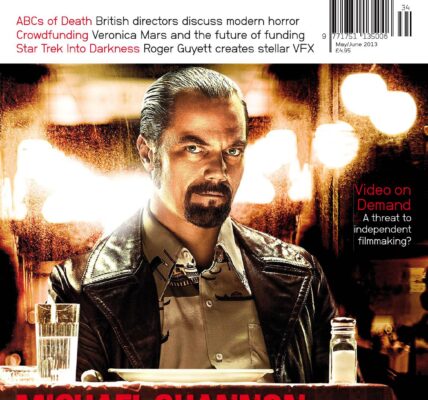Are you an aspiring writer with a danatoto for storytelling? Whether you dream of writing the next blockbuster film or crafting compelling narratives, the world of cinema offers a treasure trove of inspiration and knowledge. One invaluable resource for budding writers is the iconic movie script. These screenplays have stood the test of time, captivating audiences and setting new standards in storytelling. By studying these classics, you can gain valuable insights into the art of crafting a gripping narrative. In this article, we will explore 10 iconic movie scripts every aspiring writer should read.
1. “Casablanca” (1942) – Written by Julius J. Epstein, Philip G. Epstein, and Howard Koch
“Casablanca” remains a timeless classic, known for its unforgettable characters and unforgettable lines. This script teaches aspiring writers the importance of character development and the power of memorable dialogue.
2. “The Godfather” (1972) – Written by Mario Puzo and Francis Ford Coppola
Mario Puzo’s adaptation of his own novel, co-written with director Francis Ford Coppola, sets the bar for masterful adaptations. It showcases intricate family dynamics and the use of subtext, essential for any writer to understand.
3. “Pulp Fiction” (1994) – Written by Quentin Tarantino
Quentin Tarantino’s “Pulp Fiction” is a masterclass in non-linear storytelling. It demonstrates the art of creating complex yet intriguing narratives, all while maintaining an engaging pace.
4. “Citizen Kane” (1941) – Written by Orson Welles and Herman J. Mankiewicz
This script is a lesson in exploring a character’s life through multiple perspectives. It delves deep into the complexities of a central character, Charles Foster Kane, and his enigmatic life.
5. “Good Will Hunting” (1997) – Written by Matt Damon and Ben Affleck
The story behind this script’s creation, as well as its content, is inspiring for aspiring writers. It proves that talent can emerge from anywhere and emphasizes the importance of heartfelt, character-driven narratives.
6. “Schindler’s List” (1993) – Written by Steven Zaillian
“Schindler’s List” tackles a heavy subject matter with grace and depth. It teaches writers the significance of handling sensitive topics with care and crafting powerful emotional arcs.
7. “Eternal Sunshine of the Spotless Mind” (2004) – Written by Charlie Kaufman
This script explores the complexities of memory and love, emphasizing the importance of inventive storytelling and unique, memorable characters.
8. “The Shawshank Redemption” (1994) – Written by Frank Darabont
This adaptation of Stephen King’s novella is an example of the power of redemption stories and the impact of strong character development.
9. “Annie Hall” (1977) – Written by Woody Allen and Marshall Brickman
Woody Allen’s “Annie Hall” is a lesson in writing sharp, witty dialogue and crafting unique romantic comedies that break the mold.
10. “Star Wars: Episode IV – A New Hope” (1977) – Written by George Lucas
George Lucas’ script for the original “Star Wars” film not only changed the face of science fiction but also showcases the importance of world-building and epic storytelling.
These iconic movie scripts are more than just excellent examples of storytelling. They are reservoirs of wisdom, waiting for aspiring writers to tap into their insights. When studying these scripts, pay attention to their unique elements:
- Character Development: Observe how characters are introduced, evolve, and impact the story’s progression.
- Dialogue: Take note of memorable lines and how they contribute to character depth and storytelling.
- Story Structure: Analyze the plot’s organization and pacing, noting any unconventional approaches.
- Theme Exploration: Consider the themes and messages conveyed through the story.
- Genre Mastery: Study how these scripts excel within their respective genres, be it drama, comedy, sci-fi, or crime.
As an aspiring writer, immersing yourself in these scripts will sharpen your skills, open your mind to different narrative techniques, and inspire your creativity. Reading and analyzing them is just the beginning. Try writing your own interpretations or reimaginations of scenes to practice what you’ve learned.
In conclusion, the world of cinema offers aspiring writers a wealth of knowledge and inspiration. The 10 iconic movie scripts mentioned above are just a starting point for your journey. Explore, learn, and let your passion for storytelling fuel your writing. With dedication and these timeless scripts as your guides, you may one day craft your own iconic screenplay that leaves an indelible mark on the world of cinema.
So, grab a notebook, get your hands on these scripts, and let the storytelling adventure begin. Your journey as a writer awaits, and the world is eager to hear your unique voice.












